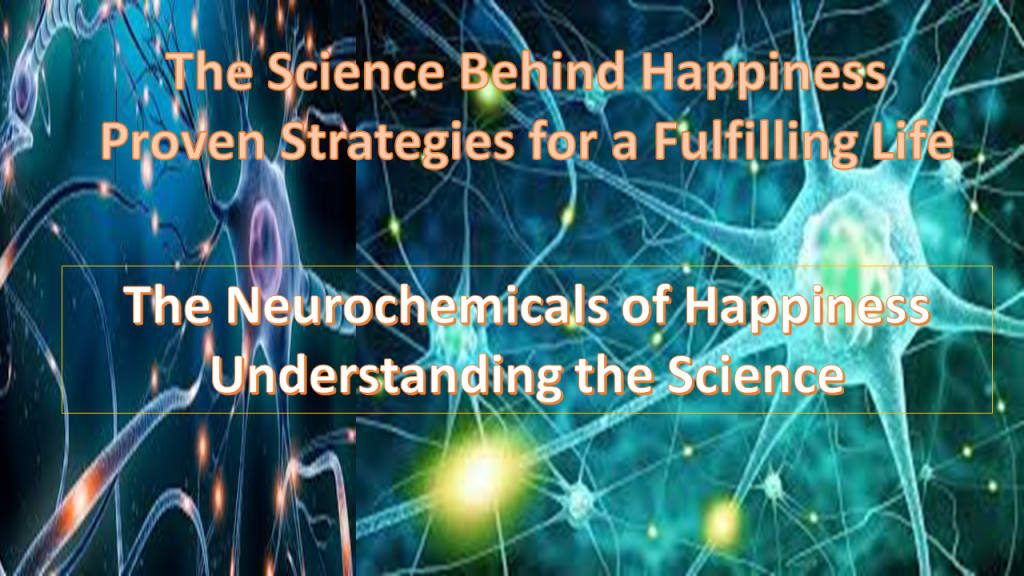The Science Behind Happiness: Proven Strategies for a Fulfilling Life
: The Neurochemicals of Happiness: Understanding the Science

In the quest for happiness, researchers have delved deep into the intricate workings of the human brain. The neurochemicals responsible for our emotional well-being play a vital role in shaping our experiences and overall satisfaction in life. By understanding the science behind these neurochemicals, we can unlock valuable insights into what drives happiness and how we can cultivate it.
One of the key players in the neurobiology of happiness is dopamine. Known as the "feel-good" neurotransmitter, dopamine is associated with pleasure, motivation, and reward. When we accomplish a goal or experience something enjoyable, dopamine is released, reinforcing positive behavior and creating a sense of satisfaction. By setting achievable goals and celebrating small victories, we can activate the release of dopamine and experience a boost in happiness.
Another vital neurochemical is serotonin, often referred to as the "mood regulator." Serotonin helps to stabilize our emotions, promote feelings of well-being, and regulate anxiety and depression. Low levels of serotonin have been linked to mood disorders, while increased serotonin can lead to an uplifted mood and a sense of contentment. Engaging in activities like exercise, exposure to sunlight, and acts of kindness can boost serotonin levels, contributing to a greater sense of happiness.
Endorphins, our natural painkillers, also play a significant role in happiness. These neurochemicals are released during activities such as exercise, laughter, and certain foods. Endorphins not only reduce pain perception but also create a euphoric feeling, commonly known as the "runner's high." Engaging in physical activities, pursuing hobbies, or even indulging in a piece of dark chocolate can trigger the release of endorphins, promoting happiness and overall well-being.
Oxytocin, often called the "love hormone," is crucial for social bonding and fostering trust. It is released during moments of intimacy, social connection, and acts of kindness. Oxytocin enhances feelings of empathy, love, and overall happiness. By nurturing our relationships, engaging in meaningful conversations, and performing acts of generosity, we can stimulate the release of oxytocin, fostering deeper connections and a greater sense of happiness.
Understanding the science behind these neurochemicals opens up opportunities for intentional actions to boost our happiness levels. By incorporating activities that target the release of these neurochemicals, we can create a positive feedback loop, enhancing our overall well-being.
To harness the power of these neurochemicals, one can adopt several strategies. Engaging in regular exercise, whether it's jogging, dancing, or yoga, helps release dopamine, endorphins, and serotonin, contributing to improved mood and happiness. Engaging in mindfulness and meditation practices can also promote the release of serotonin, reducing stress and increasing overall well-being.
Furthermore, cultivating strong social connections is vital. By spending quality time with loved ones, engaging in meaningful conversations, and practicing acts of kindness, we can trigger the release of oxytocin, strengthening relationships and fostering happiness.
Incorporating these strategies into our daily lives is essential, but it's equally important to recognize that happiness is a multifaceted and individual experience. What works for one person may not work for another. It's essential to explore various activities and find what resonates with us personally.
In conclusion, the neurochemicals of happiness provide valuable insights into the science behind our emotional well-being. By understanding the role of dopamine, serotonin, endorphins, and oxytocin, we can intentionally engage in activities that stimulate their release, thereby promoting happiness. Through regular exercise, mindfulness practices, fostering social connections, and acts of kindness, we can optimize our neurobiology of happiness and experience a more fulfilling life.
By embracing the power of these neurochemicals and incorporating them into our daily routines, we have the opportunity to cultivate a deeper understanding of happiness and pave the way for a more joyful and meaningful existence.
Hashtags: #HappinessScience #NeurochemicalsOfHappiness #BrainChemistry #ScienceOfWellbeing
Keywords: neurochemicals of happiness, science of happiness, brain chemistry, dopamine, serotonin, endorphins, oxytocin, neurobiology of happiness





Comments
There are no comments for this story
Be the first to respond and start the conversation.